STEEP FALLS — When Amy Gleason read a notice from the federal government warning people not to “snuggle or kiss” their backyard chickens, she couldn’t help but laugh a little.
“I read that and I’m thinking, ‘I always kiss my chickens. The kids kiss the chickens,’ ” she said. “We cuddle our chickens. Ours are pets.”
As silly as the advice may seem, government officials say the risk of contracting salmonella from snuggling up to chickens is real. So far this year, 300 people in 42 states – including nine in Maine – have been infected with salmonella from contact with their pet chickens. The outbreak has been linked to contact with chicks, ducklings and other live poultry from Mt. Healthy Hatcheries in Ohio.
Since the 1990s, 45 salmonella outbreaks have been linked to live poultry, including five outbreaks in 2011 and eight in 2012. Most people infected with the disease suffer from diarrhea, fever and abdominal cramps, but five of the 1,581 people infected with salmonella from chickens since 1991 have died, according to the Centers for Disease Control and Prevention (CDC). No one has died of salmonella from the latest outbreak.
With a growing number of families raising chickens in Maine and across the country, health officials are reminding people that chickens can carry salmonella, even when they appear active and healthy.
So what does that really mean for all the families with hens running around the backyard? Use a little common sense.
Don Hoenig, a retired state veterinarian and board member of the Maine Poultry Growers Association, said the small risk of contracting salmonella shouldn’t deter Mainers from owning chickens. Salmonella is, he said, “a fact of life with chickens.”
“I think backyard chickens make fine pets. They’re one of the few animals that normal people can have, and they can produce food for them every day,” he said. “But I don’t think people need to be overly concerned about disease transmission from backyard chickens if you practice basic sanitation.”
Hoenig said chicken owners should wash their hands thoroughly with soap and water after handling the birds, their eggs or being in or around the coop. It’s also a good idea to keep a separate pair of shoes or boots to wear when caring for the chickens, he said.
Dr. Stacey Bosch, a veterinarian and epidemiologist for the CDC in Atlanta, said people have been warned for many years about the risk of salmonella from undercooked chicken, but some may not realize there is also a risk from handling live poultry.
“You can, in fact, get salmonella from live birds, and they can look very healthy and clean while they’re shedding salmonella,” she said. “The strain causing this outbreak does not cause illness in birds.”
While the CDC is offering warnings and advice to chicken owners, Bosch said people shouldn’t interpret it as a warning against owning chickens. The bottom line, she said, is that people just need to be diligent about washing their hands properly and leaving their chickens outside.
“We have found people are bringing birds inside their homes, particularly when the weather gets cold,” Bosch said.
Gleason, whose three daughters have been raising chickens for two years, said she doesn’t let the chickens inside – even though one hen shows up every morning to peck on their back door. She’s also diligent about making sure she and her daughters all wash their hands after playing with their six hens, but it wasn’t something she understood the importance of right away.
“To me at first (the chickens) seemed like a pet,” she said. “You don’t always wash your hands after you pet a dog.”
Now, Gleason and her girls – 10-year-old Ava, 8-year-old Maezy and 5-year-old Penelope – scrub their hands with soap and water and change their shirts after playing with the chickens that roam the front yard of their home in a quiet Steep Falls neighborhood.
“It’s something we have to constantly remind each other to do,” Gleason said as Ava stood nearby in the garden, propping the hen against her shoulder at just the right angle to grab bugs off a plant. Maezy and Penelope ran in zig-zags through the yard to catch chickens, then snuggled them close to their chests to show the hens off to a visitor.
“They’re kind of feisty sometimes,” Ava said of the family’s hens. She said she knows she has to wash her hands because chickens can carry diseases, but that doesn’t dampen her enthusiasm for them.
That’s the attitude Hoenig, the retired state veterinarian, thinks chickens owners should have.
“It’s all about common sense and basic hygiene,” he said. “There’s nothing magical about it.”
Copy the Story LinkSend questions/comments to the editors.


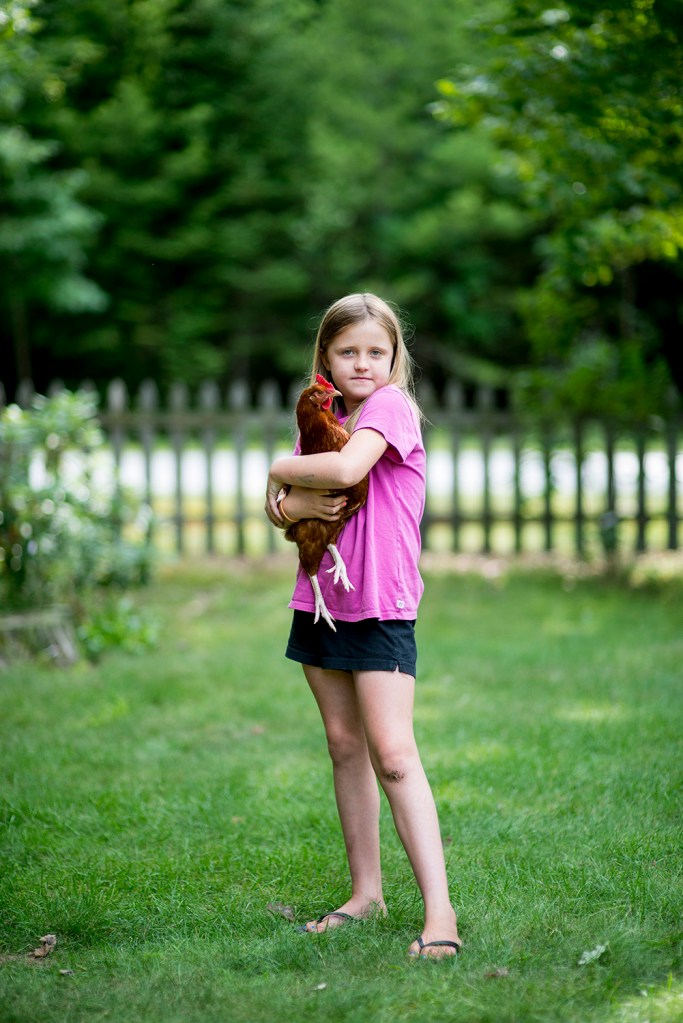
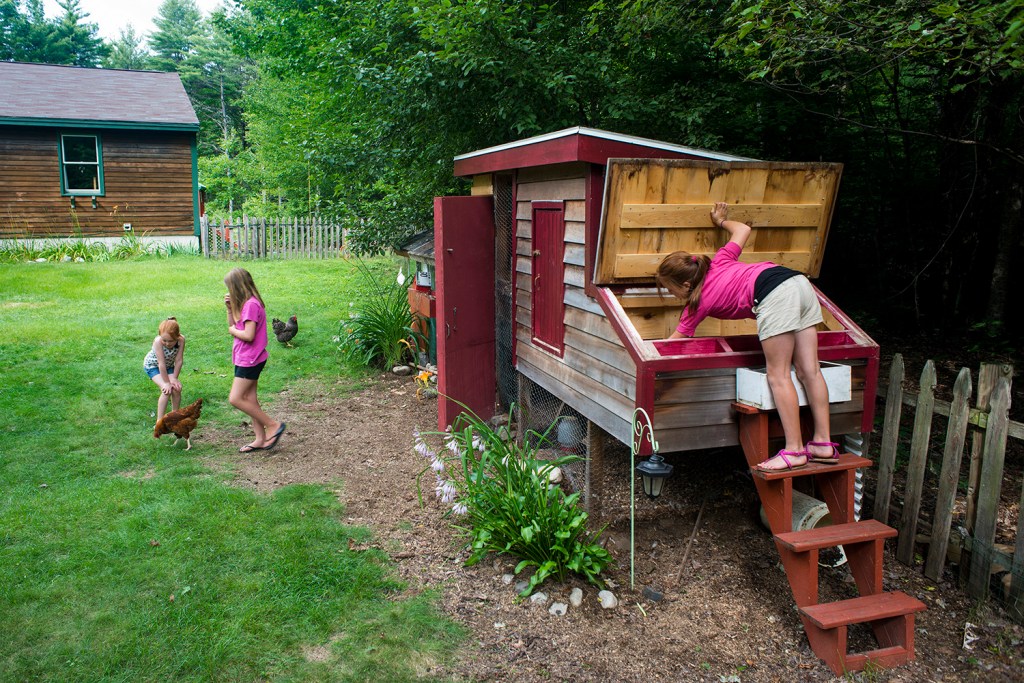
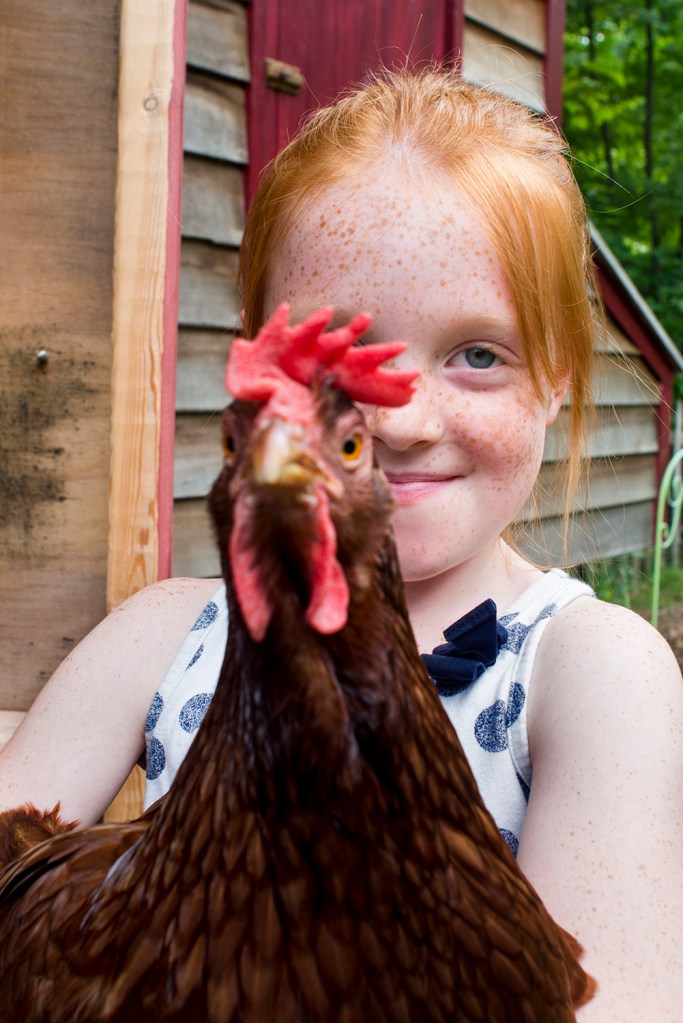
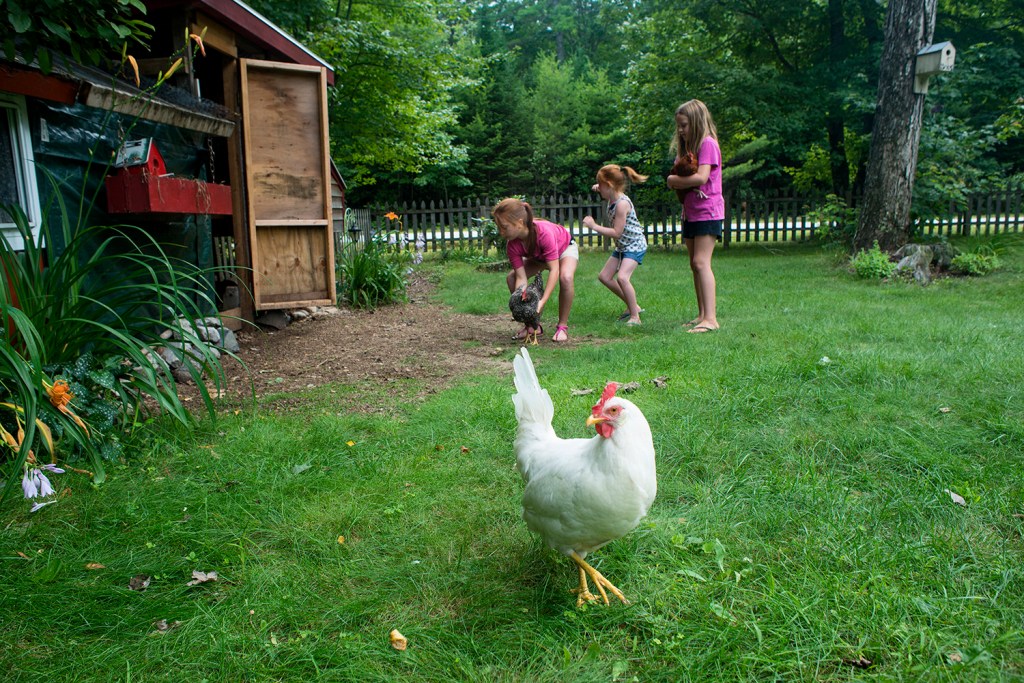
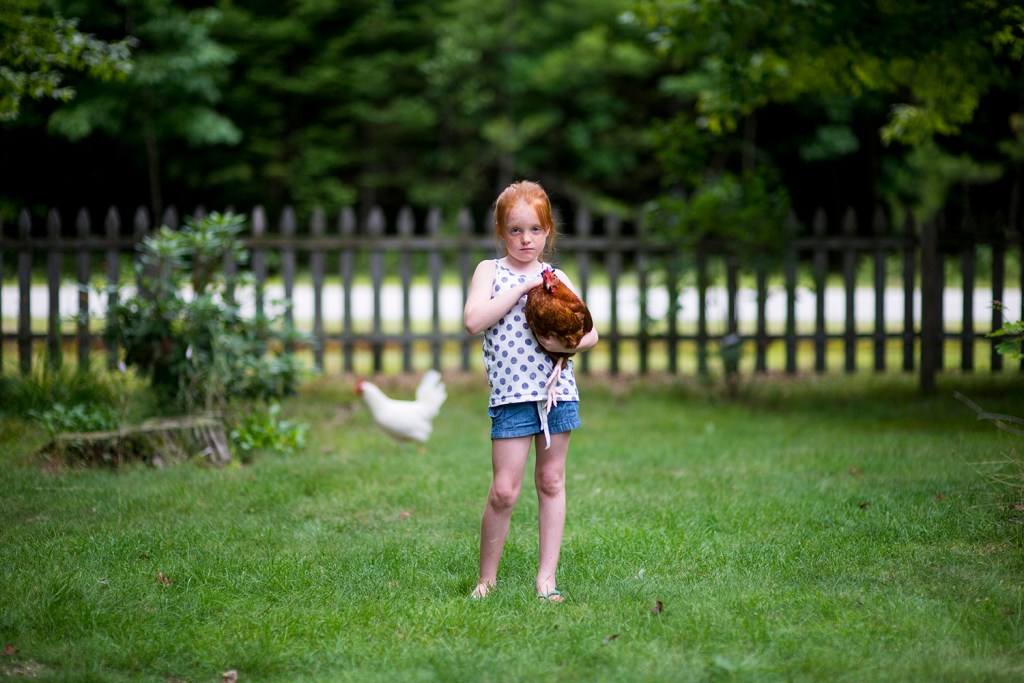

Success. Please wait for the page to reload. If the page does not reload within 5 seconds, please refresh the page.
Enter your email and password to access comments.
Hi, to comment on stories you must . This profile is in addition to your subscription and website login.
Already have a commenting profile? .
Invalid username/password.
Please check your email to confirm and complete your registration.
Only subscribers are eligible to post comments. Please subscribe or login first for digital access. Here’s why.
Use the form below to reset your password. When you've submitted your account email, we will send an email with a reset code.